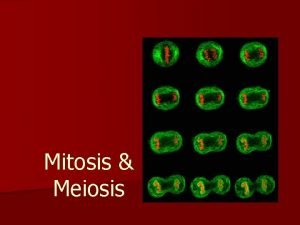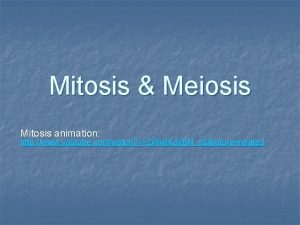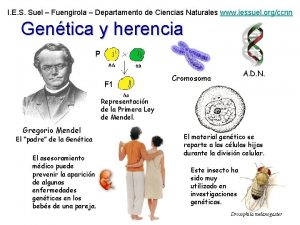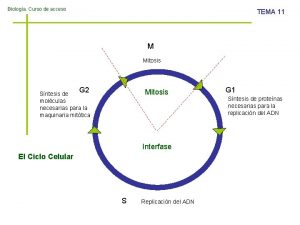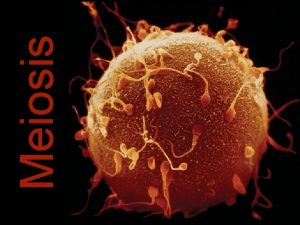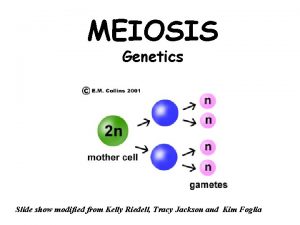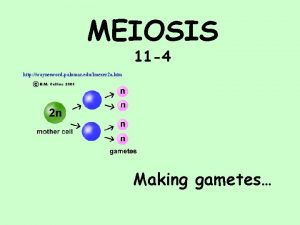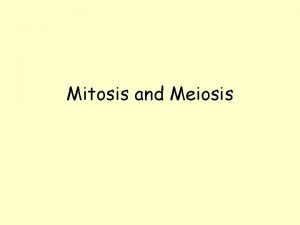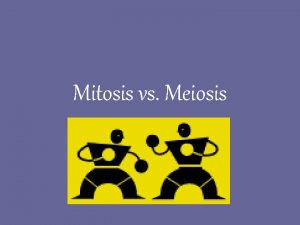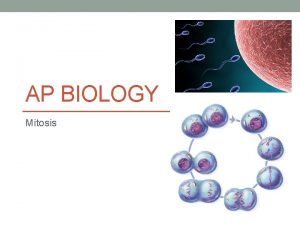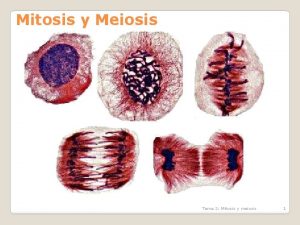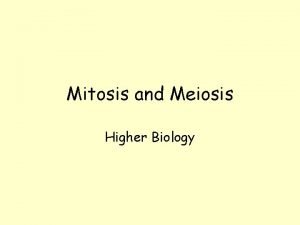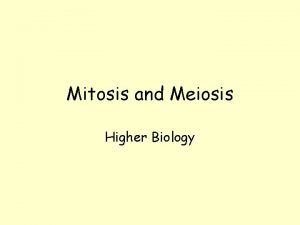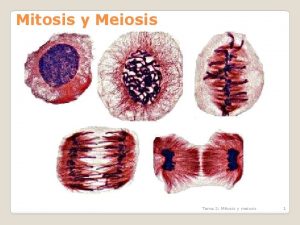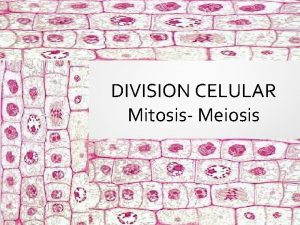Mitosis vs Meiosis Mitosis Meiosis Based on the

Mitosis vs. Meiosis

Mitosis Meiosis

Based on the diagram, The difference between mitosis and meiosis is that mitosis produces two identical daughter cells and meiosis produces four genetically different daughter cells

Mitosis Parent cell Diploid (2 n) Meiosis Parent cell Diploid (2 n) 1 st division Diploid (2 n) Daughter cell Diploid (2 n) 1 st division Diploid (2 n) 2 nd division Daughter cell Haploid (n) Daughter cell Diploid (2 n)

The numbers • The cells created from mitosis are diploid or 2 n. • The cells created from meiosis are haploid or n Definitions: • Diploid (2 n) – two of each type of chromosome (in homologous pair – carry the same trait) • Haploid (n) – one of each type of chromosome

Let’s try it… • Human cells have 46 chromosomes. • Therefore, the diploid number (2 n) of chromosomes in humans is 46. • The haploid number (n) of chromosomes in humans is 23.

The reason why: mitosis • To replace other cells that have been damaged or worn out • To allow multicellular organisms to grow • For asexual reproduction • Because they get too big!

The reason why: meiosis • Meiosis results in four cells with half the number of chromosomes so that when the sex cells (sperm and egg) combine, the original or normal number of chromosomes will be restored
![One last thing… [the] where? • Mitosis occurs in normal body cells (i. e. One last thing… [the] where? • Mitosis occurs in normal body cells (i. e.](http://slidetodoc.com/presentation_image_h/f3b205fd852f9f4a6dfa4c6eef2ea6b2/image-9.jpg)
One last thing… [the] where? • Mitosis occurs in normal body cells (i. e. skin cells), and meiosis occurs in sex cells (i. e. sperm and egg) only.

The verdict

• Lets see mitosis and meiosis in action!
- Slides: 11

